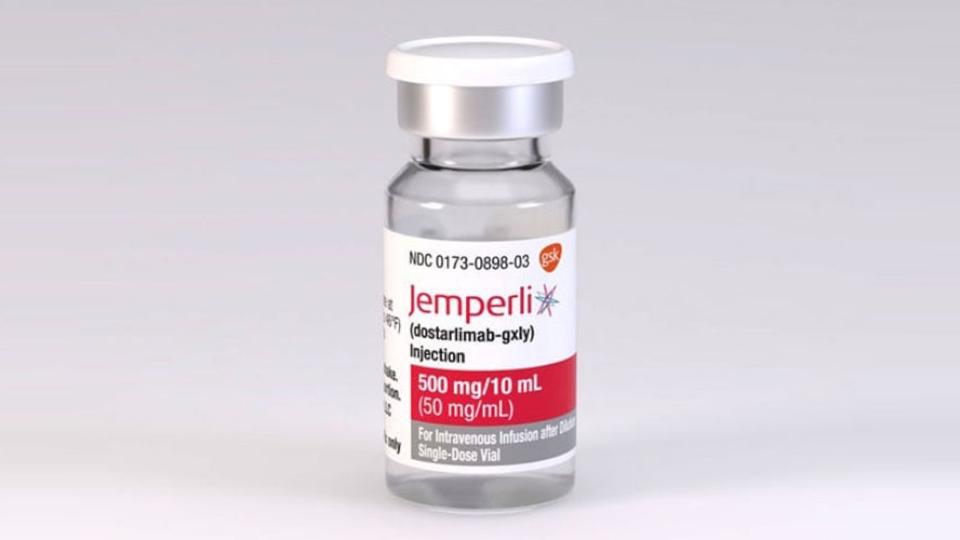New RUBY readout buoys GSK’s Jemperli in endometrial cancer

GSK has said that a regimen of PD-1 inhibitor Jemperli with PARP inhibitor Zejula has shown efficacy in the second stage of the RUBY trial, which could open up wider use in endometrial cancer.
RUBY Part 2 tested Jemperli (dostarlimab) plus chemotherapy as initial treatment, followed by Jemperli and Zejula (niraparib) in combination as maintenance therapy, in patients with primary advanced or recurrent endometrial cancer. It was compared to placebo plus chemo followed by placebo maintenance.
Top-line results released this morning by GSK show that the Jemperli/Zejula regimen improved progression-free survival (PFS) compared to chemo alone, meeting the primary endpoint and, according to the company, “reinforce development approach of using Jemperli as a backbone in immuno-oncology-based combination therapies.”
Jemperli was approved earlier this year as a first-line treatment for patients whose tumours have mismatch repair deficient (dMMR) or microsatellite instability-high (MSI-H) mutations, becoming the first cancer immunotherapy for previously untreated endometrial cancer, based on RUBY Part 1.
The second stage of the study shows that Jemperli and Zejula have a benefit in both the overall patient population and in a subpopulation of patients with mismatch repair proficient/microsatellite stable (MMRp/MSS) tumours.
GSK has said it plans to file the new data with regulatory authorities, and – if approved – the regimen would be an option for a much larger endometrial cancer patient population. It would also deliver a rare win for immunotherapy in MSS tumours, which have proved resistant to this form of treatment.
“Patients with MMRp/MSS primary advanced or recurrent endometrial cancer have few approved treatment options,” said Hesham Abdullah, global head of oncology R&D at GSK. “Today’s positive topline results reinforce our approach of building combination therapies with dostarlimab as the backbone in an effort to improve patient outcomes and options.”
Analysis of the full trial data, including the key secondary endpoint of overall survival (OS), is ongoing, but at the moment that data is “immature”, said GSK.
In October, GSK reported new data from RUBY Part 1, showing that adding Jemperli to standard chemo with carboplatin and paclitaxel improved OS compared to chemotherapy plus placebo in both dMMR and MSI-H patients, as well as an MMRp/MSS subgroup.
The company has previously said that extending first-line use of the drug to an ‘all-comer’ population, regardless of the genetic status of their tumours, is key to unlocking blockbuster sales for Jemperli of $1 billion a year or more. RUBY Part 2 is another step towards that ambition, with the bonus of potentially unlocking a maintenance indication as well.
There are around 60,000 new cases of endometrial cancer diagnosed each year in the US, with 15% to 20% of them at the advanced or metastatic stage. Of these, just 20% to 29% are dMMR or MSI-H.













